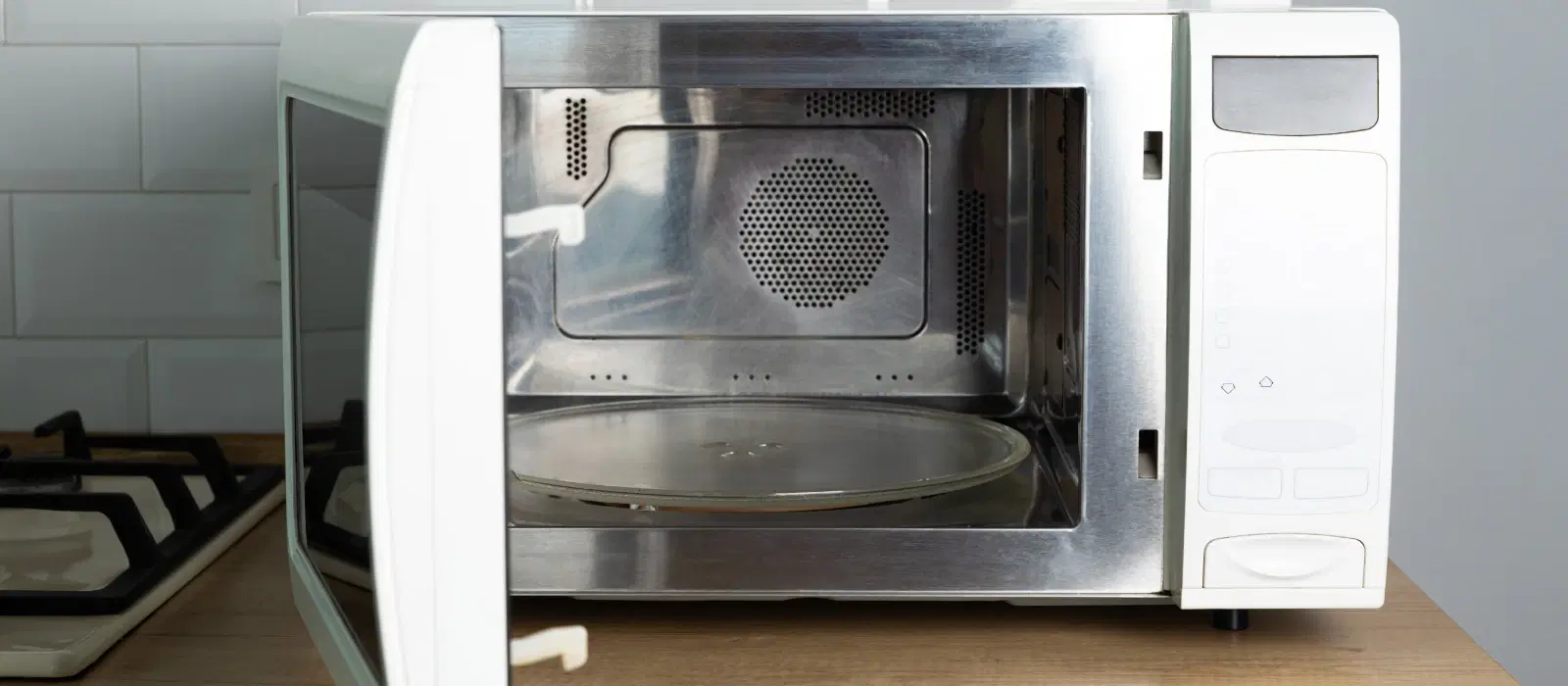
Home Appliances
•03 min read

Are you struggling to determine the ideal height for your microwave oven? You're not alone! Proper placement is key for safety, ease of use and achieving a stylish kitchen layout. In this article, we explore everything you need to know about microwave oven height and offer expert installation tips to help you design a functional kitchen space.
To ensure a safe and convenient setup, understanding the recommended microwave installation height is essential. Generally, over-the-range microwaves are installed about 15-18 inches above the countertop. In contrast, built-in models are typically positioned at eye level for optimal ease of use, while countertop microwaves rest on the surface and have measurements such as 24 inches wide, 14 inches tall, and 16 inches deep.
The right microwave installation height plays a crucial role in ensuring safety. Setting your microwave too high may increase the risk of burns or mishaps, particularly when handling hot foods. Ergonomics also matter, especially in homes with young children or elderly members, as it ensures that the microwave is easily accessible and safe for everyday use.
Different types of microwaves come in varying standard dimensions. For countertop models, you might typically see measurements around 24 inches in width, 14 inches in height and 16 inches in depth. Over-the-range units usually consider both the appliance and the necessary ventilation space. Built-in microwaves are designed to align with adjacent kitchen cabinets, seamlessly blending into your kitchen aesthetics.
Proper clearance is vital for the safe operation of any microwave. Adequate ventilation not only prevents overheating but also improves efficiency. A common recommendation is to maintain at least 3 inches of clearance on all sides and 12 inches above the microwave. These microwave clearance space guidelines ensure that your appliance performs optimally and reduce any potential hazards.
(36)-4308a423-45cd-4e67-9f29-6fe0343bdbac.png&w=3840&q=75)
Selecting the perfect height for your microwave installation requires consideration of your kitchen layout, the height of your cabinets and your personal preferences. For instance, if you are installing a built-in microwave, it is often best to align it with your kitchen cabinets to create a harmonious look. Knowing the standard microwave dimensions and considering your kitchen’s unique characteristics can help you make a decision that balances safety and style.
In addition to the appliance's physical dimensions, planning the location of your microwave is essential for maximizing counter space and ensuring proper ventilation. Over-the-range models need careful venting planning to ensure effective ductwork that removes excess heat and moisture. By following venting guidelines, you can avoid issues like overheating, while also keeping your kitchen looking uncluttered.
Pro Tip from Experts: Always double-check the microwave's power cord length and outlet placement during installation to avoid last-minute surprises and ensure a seamless setup.
If you’re planning a new installation, a step-by-step guide to measuring your space will come in handy. Start by measuring the width, height and depth of the selected microwave and compare it against your kitchen area. It is advisable to measure the depth of your cabinets to ensure the appliance does not protrude awkwardly, while keeping in mind that accurate measurements are key to a perfect fit. This small investment in time may save you from costly adjustments later.
Avoid errors that could affect both the functionality and aesthetics of your kitchen setup. Installing the microwave too high or too close to the stovetop can create safety risks and limit functionality. Always consult the manufacturer's guidelines for optimal microwave installation height and clearance space. When in doubt, taking a few extra moments to confirm these details can make all the difference in creating an efficient kitchen environment.
(34)-fe406979-d394-4d93-909c-c41f3c69b88e.png&w=3840&q=75)
The standard height for an over-the-range microwave is typically 15-18 inches above the stovetop, while built-in microwaves are installed at eye level for greater ease of use.
For built-in and wall-mounted models, the ideal height from the floor to the base of the unit is approximately 54 inches to ensure easy access.
Generally, the minimum height for an over-the-range microwave is around 30 inches from the stovetop to the bottom of the microwave, providing adequate safety clearance.
Countertop microwaves typically measure around 24 inches wide, 14 inches tall, and 16 inches deep; however, these dimensions can vary between different models.
Proper ventilation usually requires at least 3 inches of clearance on all sides and 12 inches above the unit to ensure effective heat dissipation.
Following proper microwave oven height guidelines and ensuring optimal installation are vital to maintaining safety and enhancing the appearance of your kitchen. By understanding standard microwave dimensions, clearance requirements, and essential placement strategies, you can make informed decisions tailored for your home. Keeping these expert tips in mind will help you create a kitchen that is both highly functional and aesthetically pleasing. Remember, every smart choice you make contributes to a seamless, efficient, and stylish space that reflects the ease and convenience of modern living.